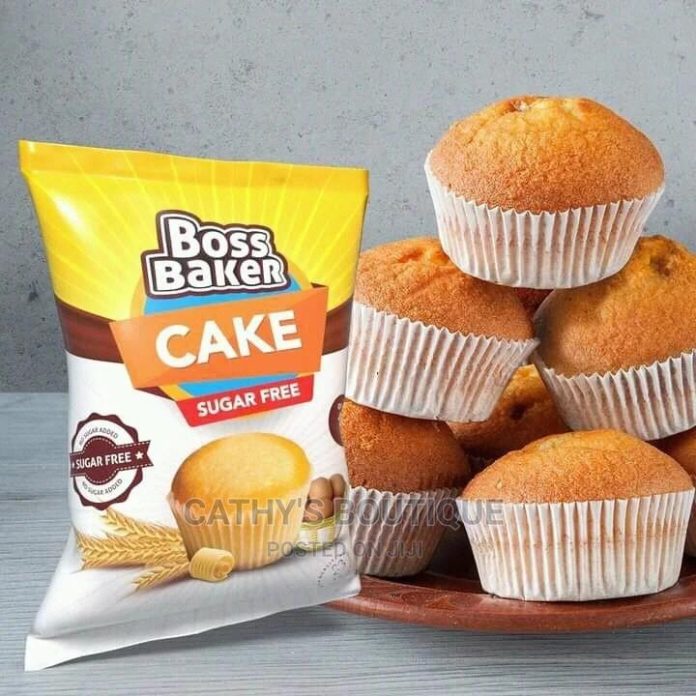Geoffrey Fadoul, CEO of Daily Food, and his co-founder started an industrial bakery business that sells snack foods across West Africa. It also supplies fast-food chains, like KFC, with burger buns. By Koromone Koroye.
Geoffrey Fadoul was born to Lebanese parents and his family – going back three generations – grew up in multiple West African countries, including Mali, Côte d’Ivoire, Burkina Faso, and Guinea.
“After finishing up my MBA in Scotland, I decided to work for our family business in Benin and the regions we operate in across Africa,” Fadoul explains.
The family operates a diversified portfolio of companies under the Fadoul Group Africa umbrella. Founded in 1966, the group began its operations in Burkina Faso before gradually expanding into more than 10 countries in Africa.
Leveraging his knowledge of West Africa’s B2B and B2C climate and connection to the region through his family’s business, Fadoul was keen to move away from the trade business and pivot towards manufacturing fast-moving consumer goods.
“I knew I wanted to manufacture products that could sell quickly in large quantities. My best bet was to produce snack foods, which people could purchase with a small amount of money,” he says.
With this idea in mind, Fadoul established Daily Food Ltd with Jean-Paul Nasser, his co-founder, in 2018. It is an industrial bakery, which manufactures and distributes food products in several West African countries, including Ghana, Benin, Togo, and Côte d’Ivoire. It operates a single factory out of Ghana and exports to other French-speaking markets.
Finding the right product-market fit
During one of his trips to Nigeria before Daily Food was established, Fadoul observed street hawkers selling a popular sausage roll product called Gala to people stuck in traffic. “It was an eye-opening observation because we saw how popular this product was among Nigerian consumers and how quickly they sold on the streets of Lagos.”
Inspired by Gala’s market penetration in Nigeria, Fadoul returned to Ghana to produce pastries like sausage, chicken, and beef rolls to sell via street vendors and open markets.
But shortly after Daily Food’s products hit the streets of Ghana, the team realized the local market was different from Nigeria’s. “Ghanaians did not appreciate the meat consistency of the beef and sausage rolls. Instead, our research revealed they preferred to see meat chunks in their pastries. Secondly, traffic in Ghanaian cities wasn’t heavy enough to enable street vendors to sell our products to interested customers,” he explains.
Daily Food had two options: to continue producing and marketing their pastries in the hope that customers would eventually embrace them or to produce snack food items that appealed to their target audience. The company decided to go with the second and introduced the Boss Baker cupcake in 2019. Less than three months later, the factory was running at full capacity.
“About a year after we tested our initial product offering, we used the same machinery to produce and package our cupcakes. We were successful in this pivot, and the cupcake became a best-seller in months,” Fadoul explains.
Tapping into the B2B market
Before Daily Food began manufacturing its cupcake product, it was approached by KFC in Ghana. “KFC wanted to localise their purchase of burger bread buns. So, we worked with them to develop buns that met KFC’s international standards. We also registered our bread buns with Burger King,” Fadoul says. He believes KFC and Burger King approached the company because of its ISO 22000 and FSSC 22000 certifications.
Ghana imported US$1.9 billion in agricultural and food-related products in 2021. Local bakeries still have to import raw materials not readily available to meet quality demands.
Business challenges and expansion opportunities
Since it launched operations in 2018, Daily Food has experienced its fair share of obstacles. “We struggled to meet consumer delight and patronage. Low sales and slow adoption revealed our prospective market didn’t enjoy our sausage rolls and meat pies. The only way to overcome that was to introduce something more enjoyable. Our solution ended up being the cupcake.”
Another challenge the company faced was accessing consumer data and insights, a complex and expensive process. Fadoul had to quickly build capacity within his marketing and sales team to meet research needs. They deployed survey tactics such as passing around snack samples and feedback questionnaires in open markets and on the streets. The team changed recipes and tried new ingredients after reading responses from their sample customers. “We still run ongoing trials and rely on market feedback to help us build our business.”
Fuelled by their research and successful pivot in Ghana, Daily Food began to explore expansion opportunities in other West African markets. Breaking into French-speaking Africa was an easy choice thanks to Fadoul’s connection to the region. In 2019, the World Bank predicted that about 62.5% of Africa’s fastest-growing economies would be in francophone Africa. In addition, French-speaking countries like Côte d’Ivoire maintained economic growth following the global pandemic in 2020.
“Our research revealed West African countries have similar FMCG environments, where a large portion of business is done in large local markets, not supermarkets,” he adds. “Before we began to export our products, we identified the big wholesalers and distributors in our category and trained these players. We gave them the resources to get our products into the hands of our end customers.”
Since the launch of its original Boss Baker cupcake in 2019, Daily Food has expanded its product offerings to include Boss Baker fruitcake, strawberry cake, chocolate cake, oat digestive, and shortbread biscuits.
“Soon, our products will reach Nigeria and the United Arab Emirates,” Fadoul reveals. “We have acquired all the necessary approvals and are waiting to send our shipments into these regions.”








